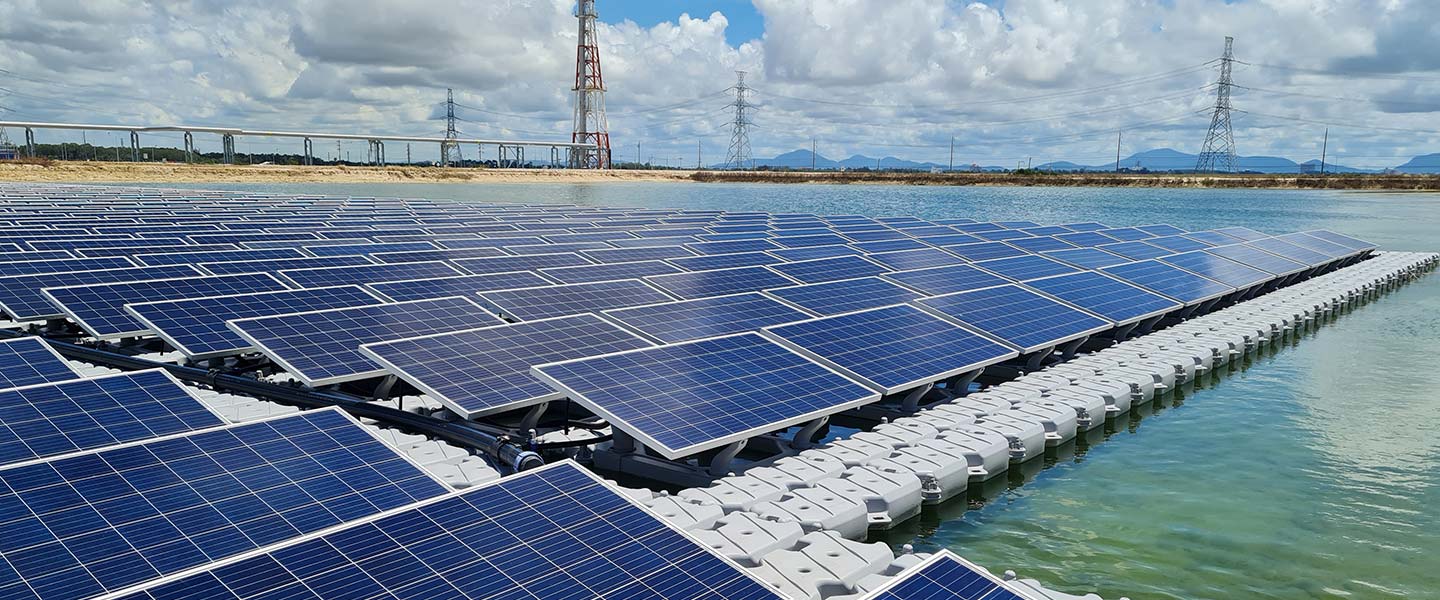-
Business Consulting
Our business consulting specialists offer a comprehensive blend of strategic advisory services. We assess the business, industry, operating model, synergy, skill sets and vision of the organisation and recommend the way forward
-
Digital Natives
Unlock growth with Grant Thornton Bharat's Digital Natives solutions. Customised support for tech-driven companies in healthcare, gaming, and more.
-
New and Emerging Tech
In a world where change is constant, staying ahead means staying adaptable. At Grant Thornton Bharat, we believe the future belongs to those who can evolve quickly, leveraging new and emerging technologies not just as trends, but as strategic levers for transformation.
-
Finance Transformation
Using a holistic approach, integrating digitalisation and digital transformation we help clients achieve transparency, control, governance, and faster decision making through real-time data within the business.
-
Human Capital Consulting
Our Human Capital Consulting team harnesses technology and industry expertise to assist in constructing adaptable organisations with transparency, fostering productive and value-driven workforces, and inspiring employees to engage meaningfully in their tasks.
-
Production Linked Incentive Scheme
Production-linked Incentive Scheme by the Indian government is aimed at boosting manufacturing. Grant Thornton Bharat offers varied services across sectors to help businesses avail of this scheme.
-
Public Sector Advisory
Our Public Sector Advisory team has focused streams, aligned with the core priorities of the Government of India. We are responsible for providing innovative and customized technical and managerial solutions.
-
Tech Advisory
We have amalgamated Digital Transformation, IT Advisory & Information Management and Analytics into a new offering, DigiTech.

-
Direct Tax services
Our tax specialists offer a comprehensive blend of tax services, tax litigation, regulatory and compliance services, helping you navigate through complex business matters.
-
Indirect Tax Services
Get tax services by leading tax firm Grant Thornton India. Our indirect tax services include consulting, compliance and litigation services for corporate, international and transaction tax
-
Transfer Pricing
Our transfer pricing services experts provide a range of services from provision of APA services to handling large global assignments including Country by Country reporting.
-
US Tax
At Grant Thornton, we help individuals and dynamic companies deal with US tax laws, which are one of the most complicated tax legislations across the world.
-
Financial Services - Tax
Best financial consulting services, tailored for small and large businesses by the experts having comprehensive knowledge of domestic laws and access to multifaceted tools to provide a valuable results.
-
Financial Reporting consulting services
Our experts have significant hands-on experience in providing IFRS/US GAAP services, end-to-end solutions and support services to fulfil financial reporting requirements.
-
Fund accounting and financial reporting
International operations often lack standardisation and have varied local reporting formats and requirements. Our experts can offer proactive insights, practical guidance, and positive progress and help meet regulatory timeframes.
-
Compliance and Secretarial Services
Our experts can assist in overhauling the entire compliance machinery of the organisation through evaluation of the applicable statutory obligations, monitoring of adequate governance controls, reporting and providing ongoing support.
-
Global People Solutions
As businesses transcend borders, both domestic and global considerations need equal attention. Our interim CFO and financial controller support services help organisations meet the business vision.
-
Finance and accounting outsourcing
Our accounting experts assist organisations in managing their accounting and reporting. Our dedicated Integrated Knowledge and Capability Centre (IKCC), allows us to service both the domestic and global markets efficiently and cost-effectively
-
Compliance Management System
We have automation solutions for you that will allow meeting government requirements and remain diligent, which when failed, can lead to penalties and loss in revenue.
-
Centres of Excellence
Strategic business hubs for global delivery
-
Global compliance and reporting solutions
At Grant Thornton Bharat, we meet the challenges of our clients and help them unlock their potential for growth. Our professionals offer solutions tailored to meet our clients’ global accounting and statutory reporting requirements. With first-hand experience of local reporting requirements in more than 145+ locations worldwide, we provide seamless and consistent international service delivery through a single point of contact.
-
Related-party transaction governance
Related-party transactions (RPTs) are common in business structures where organisations engage with their group entities, such as holding companies, subsidiaries, associate concerns, joint ventures, or key management personnel, for various operational or financial purposes.
-
Family Offices and Private Client Services
Grant Thornton Bharat Private Client Services offers tailored consulting for family-owned businesses, focusing on governance, compliance, tax, succession planning, and family office structuring to sustain wealth and preserve legacies across generations.
-
Labour codes
Labour codes solutions help you transition through the new legislation. At Grant Thornton, we help businesses divide their approach to make sure a smooth transition.
-
Alerts
At Grant Thornton India, with the help of our tax alerts, we help to provide updates on how to minimise your tax exposure and risks.
-
India investment roadmap
The India Investment Roadmap resource is designed to navigate the complexities of Indian tax and regulatory laws, providing seamless guidance and a comprehensive set of solutions to ensure a smooth process for investors aiming to establish or expand their presence in India.
-
CFO Solutions
Our comprehensive suite of solutions for CFOs

-
Crisis and Resilience
Cyber risks, financial crime and regulatory scrutiny demand strong preparedness. Our forensic team helps organisations build robust crisis and resilience frameworks to protect value and maintain trust.
-
Cyber
In today’s time, businesses have gone through large transformation initiatives such as adoption of digital technologies, transition to cloud, use of advanced technologies et al.
-
ESG consulting
Grant Thornton Bharat offers holistic ESG consulting solutions for sustainable business outcomes. With industry expertise and AI technology, we drive long-term value.
-
Risk analytics
Grant Thornton Bharat’s CLEARR Insights is a state-of-the art data analytics platform that will help you in seamless data analysis and efficient decision-making.
-
Forensic & Investigation Services
The team of forensic consulting services experts consists of the best intelligence corporate experts, and fraud risk, computer forensic experts to deliver most effective solutions to dynamic Indian businesses.
-
Risk Optimisation
Our Governance, Risk and Operations (GRO) services encompass Internal Audit, Enterprise Risk Management, Internal Financial Controls, IT advisory, Standard Operating Procedures and other services.

-
Deal Advisory
Unlike other M&A advisory firm in India, we offer deal advisory services and work exclusively with controlled and well-designed strategies to help businesses grow, expand and create value.
-
Due Diligence
Grant Thornton’s financial due diligence services are aimed at corporate looking for mergers and acquisitions, private equity firms evaluating investments and businesses/promoters considering sale/divestment.
-
Debt & Special Situations Solutions
Grant Thornton Bharat offers specialist debt and special situations consulting services, including restructuring, insolvency, and asset tracing solutions.
-
IPO Services
Grant Thornton Bharat’s IPO services ensure optimal scaling of organisations in the financial markets
-
Transaction Tax Services
Our transaction tax experts understand your business, anticipate your needs and come up with robust tax solutions that help you achieve business objectives ensuring compliance and efficiency
-
Overseas Listing
Overseas listing presents a perfect platform for mid-sized Indian companies with global ambitions. Grant Thornton’s team of experts in listings, work closely with clients during all stages.
-
Valuations
Valuation services are central to every deal lifecycle — from pre-deal strategy to post-transaction integration. Grant Thornton Bharat delivers precise, compliant, and defensible valuations across regulatory, financial reporting, and transaction contexts. Our experts apply deep technical and sector insights to ensure fair value, mitigate risk, and support decision-making for M&A, private equity, litigation, and intangible assets. Every deal begins with the right value — we help you discover it.
-
Financial Reporting Advisory Services
Grant Thornton Bharat Financial Reporting Advisory Services offer end-to-end solutions for complex financial requirements, including GAAP conversions, IPO support, and hedge accounting advisory, ensuring accurate financial reporting and compliance.
-
Financial Statement Audit and Attestation Services
Grant Thornton Bharat offers customised financial statement audit and attestation services, ensuring impeccable quality and compliance with global standards. Our partner-led approach, technical expertise, and market credibility ensure effective solutions for your business needs.

- Agriculture
- Asset management
- Automotive and EV
- Banking
- Education and ed-tech
- Energy & Renewables
- Engineering & industrial products
- Fintech
- FMCG & consumer goods
- Food processing
- Gaming
- Healthcare
- Urban infrastructure
- Insurance
- Media
- Medical devices
- Metals & Mining
- NBFC
- Pharma, bio tech & life sciences
- Real estate and REITs
- Retail & E-commerce
- Specialty chemicals
- Sports
- Technology
- Telecom
- Tourism & hospitality
-
 Thought leadership Co-lending in India: Expanding credit access for MSMEsIn today’s rapidly evolving financial landscape, co-lending has emerged as a key enabler of credit expansion in India, facilitating partnerships between banks and non-banking financial companies (NBFCs) to extend credit more efficiently to underserved segments.
Thought leadership Co-lending in India: Expanding credit access for MSMEsIn today’s rapidly evolving financial landscape, co-lending has emerged as a key enabler of credit expansion in India, facilitating partnerships between banks and non-banking financial companies (NBFCs) to extend credit more efficiently to underserved segments. -
 Article Why India’s financial inclusion journey needs to focus on equity and access to creditFinancial services have expanded over a decade, giving millions access to bank accounts and digital payments. But true empowerment needs to reach every corner of the country if growth is to be long-term and sustained
Article Why India’s financial inclusion journey needs to focus on equity and access to creditFinancial services have expanded over a decade, giving millions access to bank accounts and digital payments. But true empowerment needs to reach every corner of the country if growth is to be long-term and sustained -
 Thought Leadership Competitive and sustainable agriculture & food processing in KeralaThe economy of Kerala is primarily driven by the services sector, which contributes 66% to the Gross State Domestic Product (GSDP).
Thought Leadership Competitive and sustainable agriculture & food processing in KeralaThe economy of Kerala is primarily driven by the services sector, which contributes 66% to the Gross State Domestic Product (GSDP). -
 Article Economic Survey 2024-25: Deregulation, investment and innovation for a Viksit BharatIndia's economic growth remains for a steady trajectory with real GDP expected to grow at 6.4% in FY25 and in the range of 6.3%-6.8% in FY26, reflecting resilience despite global uncertainties.
Article Economic Survey 2024-25: Deregulation, investment and innovation for a Viksit BharatIndia's economic growth remains for a steady trajectory with real GDP expected to grow at 6.4% in FY25 and in the range of 6.3%-6.8% in FY26, reflecting resilience despite global uncertainties.
-
Quarterly Aviation Insights
Explore the latest trends in aviation industry with Grant Thornton Bharat’s Quarterly Aviation Insights. Stay updated on industry growth, market shifts & key developments.

-
Freight Forward: Quarterly insights
Logistics sector in India is adapting to rising costs, global disruptions, and the growing urgency of sustainability.
-
India-UK
India-UK
-
India - Japan
India - Japan

India is currently experiencing a severe heatwave, with temperatures in the Delhi NCR region reaching around 50 degrees Celsius. Other states like Rajasthan, Punjab, Haryana, and Uttar Pradesh face similar conditions and have been on red alert. Meteorologists attribute these heatwaves to rising global sea temperatures and shifting climate patterns. This issue is global, with the UN noting that fossil fuel burning and greenhouse gas emissions are accelerating global warming and altering weather patterns, causing heatwaves, droughts, floods, and health problems, significantly impacting our lives . According to a recent report by the World Economic Forum, a 1-degree Celsius rise in temperature reduces global GDP by 12%, highlighting the gravity of the situation . In order to combat this situation, countries are working through initiatives such as the Paris Agreement and Conference of the Parties (COP) under the United Nations Framework Convention on Climate Change (UNFCCC) forum, with COP 28 in Dubai in 2023 seeing new commitments for cleaner energy transitions.
India, ranked as the world’s fifth-largest economy, aims to achieve a formidable target of 500 GW of renewable energy capacity by 2030 . During COP 26, the Indian Prime Minister announced an ambitious goal for the nation to attain net-zero emissions by 2070 . India has launched several key initiatives to meet this objective, including the International Solar Alliance, the Global Biofuels Alliance, the National Hydrogen Energy Mission, and the LiFE (Lifestyle for Environment) Mission. Additionally, India is implementing policies such as renewable purchase obligations and a carbon credit trading schemeiv. Given the current scenario, there is a pressing need for further measures to promote renewable energy adoption and facilitate green energy integration across diverse sectors.
GST on green energy sector:
Introduced in 2017, GST is a destination-based consumption tax designed to streamline India’s tax system by amalgamating various central and state indirect taxes, promoting the concept of ‘one nation, one tax,’ and improving business efficiency. GST plays a crucial role in supporting the Indian government’s objectives and accelerating the adoption of green energy. Notably, the GST Council has slashed rates on electric vehicles from 12% to 5% and charging stations from 18% to 5%. Furthermore, hiring electric buses with more than 12 passenger seats is exempt from GST . These adjustments aim to make green energy solutions more economically viable, facilitating the transition from conventional fuels to sustainable technologies. This policy shift has already driven a significant surge in electric vehicle sales, doubling in 2023, with projections suggesting a 66% growth in the EV market for 2024 . The upcoming Union Budget 2024 presents a pivotal opportunity for the government to implement further GST reforms that could bolster green initiatives, especially within the renewable energy sector.
Challenges in green energy sector under GST:
The renewable energy sector continues to encounter several challenges, outlined as follows:
- Higher GST rates: Elevated GST rates on goods such as electrolyser manufacturing, turbines, solar modules, etc., increases the cost, making green energy less competitive. Adjusting GST rates could make renewable energy alternatives more affordable and support broader adoption in the market.
- Valuation challenges: When a supplier provides green energy goods, along with specific services under a contract, deemed valuation provisions apply, allocating 70% of the total contract value to goods and 30% to services. This ratio has raised concerns within the renewable energy industry, leading some associations to challenge the appropriateness of the 70:30 deemed valuation.
- Uncertainty in classification of certain transactions: Ambiguity surrounds whether supplies such as solar power systems qualify as composite or mixed supplies, affecting GST rate determinations. Clear guidelines are essential to ensure transparency, resolve disputes, and streamline taxation for such transactions.
- Blockage of input tax credit: Industries, especially in renewable energy, encounter challenges with blocked input tax credits in works contracts, leading to higher costs passed on to consumers. Seamless availability of input tax credit is crucial to enhance cost efficiency and promote adopting green energy solutions.
- Inverted duty structure: GST rates on outward supplies being lower than on inward supplies lead to working capital challenges, as unutilised input tax credits are subject to refund complexities. Simplifying refund processes is essential to alleviate financial strains on taxpayers in the renewable energy sector.
- Lack of clarity on GST exemptions: Ambiguity in GST exemptions for renewable energy projects results in compliance inconsistencies and challenges for the industry, impacting operational clarity and cost management within the sector.
- Exclusion of natural gas from GST: Natural gas, being outside the GST purview, results in additional taxes such as VAT and surcharges, hindering its broader adoption despite its comparatively cleaner fuel status. Businesses’ inability to claim the input tax credit for the VAT paid on natural gas further complicates cost structures and adoption rates.
- Documentation and litigations: The renewable energy industry faces intensified tax compliance burdens and frequent transaction disputes, affecting the ease of doing business. More precise tax policies and streamlined procedures are necessary to mitigate these challenges and support industry growth effectively.
Reforms required in green energy sector under GST:
The government of India must address the abovementioned challenges to foster growth in the green energy sector. Some of the steps which can be taken are captured hereunder:
- Reducing GST rates for green alternatives: Lowering GST on green alternatives, such as hydrogen, electrolysers, turbines, solar modules, etc., to a lower rate, say, 5%, would enhance affordability and boost domestic production. Extending reduced rates to other renewable energy equipment is crucial to support sector growth effectively.
- Correction of inverted duty structure: Aligning GST rates on raw materials with finished products will lower input costs for manufacturers, encouraging local production of renewable energy equipment and components.
- Additional exemptions under GST: Introducing GST exemptions for green energy alternatives would improve affordability and promote wider adoption, supporting sustainable energy solutions nationwide.
- Incentives for domestic manufacturing: GST incentives for manufacturers of renewable energy components can stimulate the ‘Make in India’ initiative, creating employment opportunities and strengthening the domestic supply chain.
- Simplified taxation for green energy providers: Streamlining GST compliance for renewable energy providers will reduce administrative burdens, improve operational efficiency, and include clearer processes for tax credits and exemptions.
- Bringing natural gas under GST: Bringing natural gas into the GST framework would lower prices, attract investment, and transform India’s energy landscape by promoting cleaner fuel alternatives and fostering industry growth.
- Additional GST reforms: Enhancing clarity on ambiguous transactions and ensuring a smooth flow of input tax credits are critical GST reforms needed to support the renewable energy sector’s expansion and operational effectiveness.
These GST reforms would yield numerous benefits, including reducing the overall cost of renewable energy projects, enhancing their competitiveness with fossil fuels, attracting greater investment into the sector, generating employment opportunities, mitigating climate change, and improving air quality.
Other reforms in green energy sector:
In addition to GST-related reforms, various other measures are essential for advancing the renewable energy sector in India. Here are some of the key steps:
- Enhancing green hydrogen’s sectoral impact: Focus on green hydrogen for its critical role in expanding the renewable energy sector, including streamlined subsidies, climate finance access, and hydrogen-blending mandates for key industries.
- Expand in government-backed schemes: Government-backed production-linked incentive (PLI) schemes targetting renewable manufacturing and viability gap funding are indispensable measures to foster growth within the sector.
- Improving renewable sector financing: Reduced interest rates tailored for the renewables sector, complemented by innovative financing models, will enhance the capacity of manufacturers and equipment suppliers to compete effectively on a global scale.
- Promoting battery energy storage system (BESS) manufacturing hub: Boost indigenous development, facilitate technology transfer, and incentivise localised manufacturing with enhanced fiscal incentives to establish India as a BESS manufacturing and R&D hub.
- Other strategies for sustainable energy advancement: Prioritise AI-driven workforce development, bulk procurement, and energy storage advancements to improve efficiency and competitiveness, strengthen infrastructure, public-private partnerships, and regulatory frameworks to achieve cleaner and more cost-effective energy.
Conclusion
Since its inception, GST has revolutionised transaction frameworks within the renewable energy sector, playing a crucial role in catalysing growth, attracting investments, and stimulating innovation. Implementing a transparent and standardised tax regime under GST promises to lower operational costs, enhance competitiveness, and increase the appeal of renewable energy projects to investors. However, integrating GST into this sector continues to be an ongoing process requiring proactive adjustments. Despite its complexities, a well-structured and effectively managed GST framework promotes operational efficiency and ensures compliance, aligning closely with India’s sustainable energy objectives.
Bold reforms and a supportive regulatory environment are essential to effectively tackle current challenges. Strategic reforms aimed at empowering the renewable energy sector have the potential to unlock its full economic potential, fostering accelerated growth and advancing India towards a sustainable future. The upcoming Union Budget 2024 presents a pivotal opportunity for the Indian government to reaffirm its commitment to renewable energy through targeted reforms. Addressing existing challenges and creating an enabling fiscal environment can significantly bolster growth in the renewable energy sector, paving the way for a resilient and sustainable future.
(With inputs from Sanyam Narang, Consultant, Grant Thornton Bharat LLP)
This article first appeared in Taxmann on 25 June 2024.


